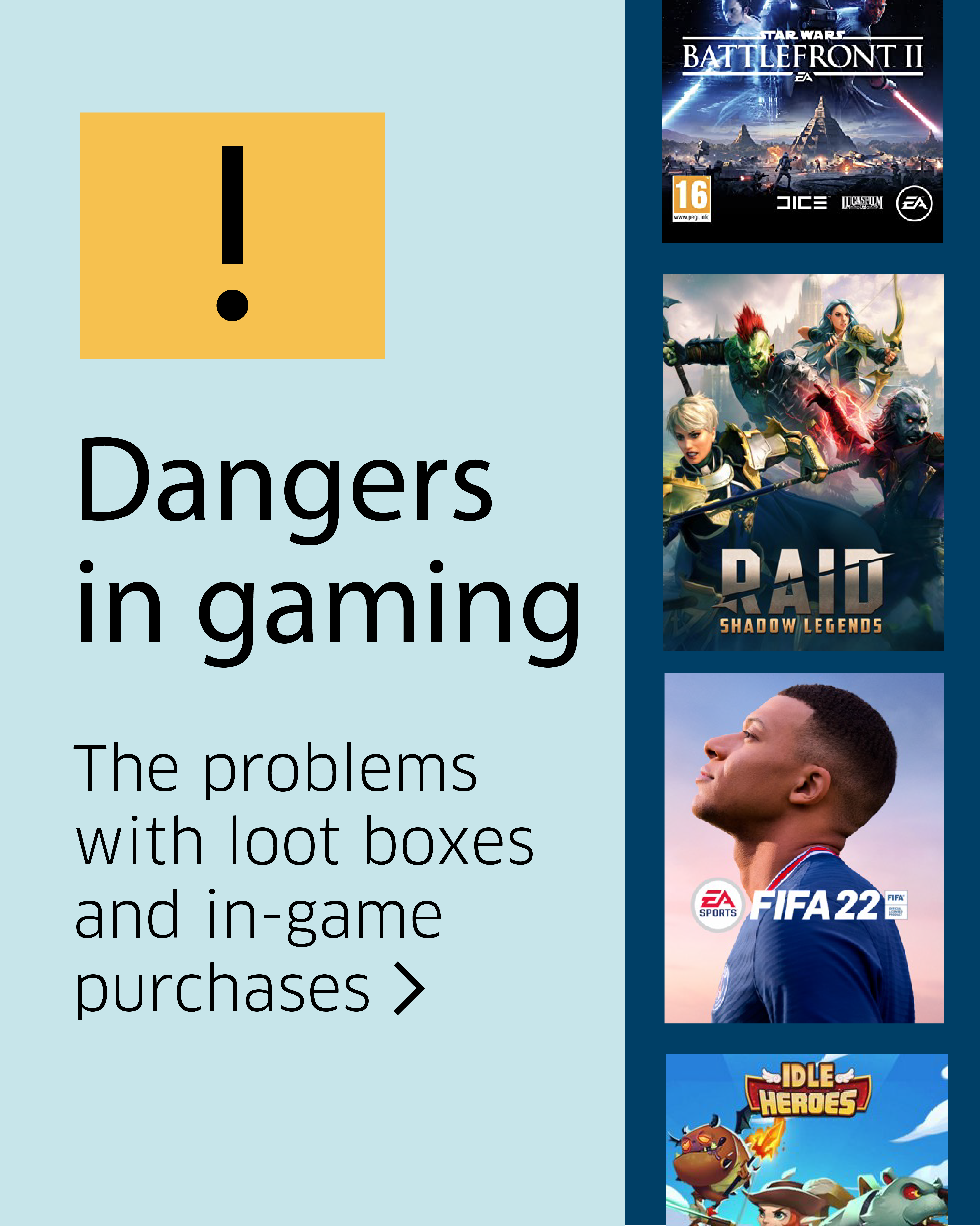Loot boxes: How the gaming industry manipulates and exploits consumers
Loot boxes: How the gaming industry manipulates and exploits consumers
BEUC NEWS - 31.05.2022
Manipulative design, aggressive marketing, and misleading probabilities are just some of the problematic practices consumers face with ‘loot boxes,’ a regular in game purchase. These practices are highlighted in a new report from BEUC’s member, the Norwegian Consumer Council (NCC) “INSERT IGNORE COIN: How the gaming industry exploits consumers using loot boxes” published today.
20 European consumer organisations from 18 countries (all members of BEUC)1, jointly call for more protection of European consumers and further regulation on loot boxes, asking their governments and consumer protection authorities to take action.
What are loot boxes?
Loot boxes are ‘mystery packages’ of digital content in video games which consumers purchase with real money. Loot boxes give gamers advantages or items to use in the game. However, they are randomised, meaning that consumers have no way of knowing what they contain until they have paid for them.
What’s the issue?
Loot boxes have been the source of several controversies already. NCC demonstrates in its report numerous problematic practices related to Loot boxes including:
- Exploiting cognitive biases and vulnerabilities of consumers through deceptive design and marketing
- Using layers of virtual currencies to mask/distort real-world monetary costs
- Targeting loot boxes and manipulative practices towards minors
An obvious need for further regulation and consumer protection
The video games industry is one of the largest entertainment industries in the world. The industry has historically generated revenue largely from the sale of video games, but in-game purchases are an increasingly significant source of revenue.
However, the video game sector has so far largely evaded regulatory scrutiny. Its business models are technically complex or novel and video games are considered a niche market by many authorities.
Due to the sheer size of the market and the number of affected consumers, NCC and participating organisations are calling for a number of measures from EU and national authorities. These include a ban on deceptive design (or ‘dark patterns’), extra protections for minors, and improved transparency (so that consumers know what they are really purchasing).
Read more
1 Adiconsum (Italy), ASUFIN (Spain), BNAAC - Bulgarian National Consumers Association (Bulgaria), Consumentenbond (The Netherlands), DECO (Portugal), dTest (Czech Republic), EKPIZO (Greece) - Federacja Konsumentów (Poland), Fédération Romande des consommateurs (Switzerland), Forbrukerrådet (Norway), Forbrugerrådet Tænk (Denmark), KEPKA (Greece), Latvijas Patērētāju interešu aizstāvības asociācija - LPIAA (Latvia), Neytendasamtökin - NS (Iceland), OCU (Spain), Sveriges Konsumenter (Sweden), UFC Que Choisir (France), Verbraucherzentrale Bundesverband - vzbv (Germany), Verein für Konsumenteninformation (Austria) , Zveza Potrošnikov Slovenije – ZPS (Slovenia).
The European Consumer Organisation
Europäischer Verbraucherverband
Bureau Européen des Unions de Consommateurs




